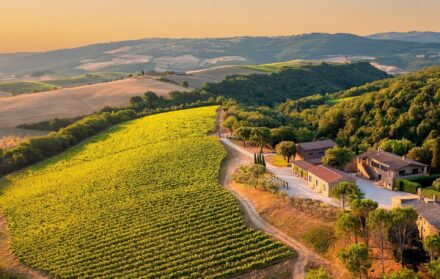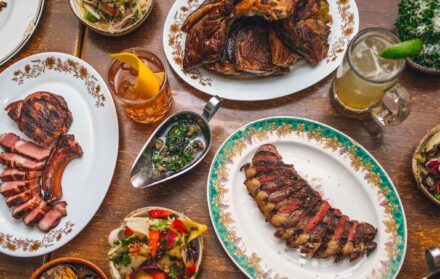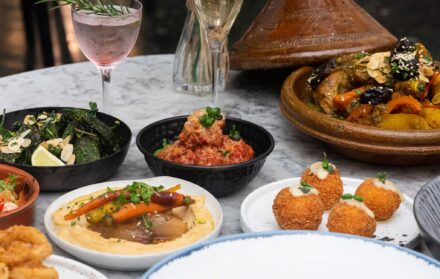
Meet the chef: Richard Turner of Meatopia
How to buy and cook a good quality steak, according to the man at the top of London’s meat business
Richard Turner makes a point of calling himself a cook, not a chef. Which, frankly, is selling himself a bit short. He’s a restaurateur, meat merchant, entrepreneur, steak expert, food writer and chef – but in spite of being trained in Michelin star kitchens, insists his passion doesn’t lie in cheffing. Instead, it comes down to two things: good quality meat and live-fire cooking.
It wasn’t always this way. Turner, after leaving a career in the army, found himself being mentored by the Roux brothers in one of the best French restaurants in the country, Le Gavroche. He went on to work in the award-winning kitchens of Marco Pierre White, Pierre Koffman, Joël Robuchon and Alain Ducasse. Not the most sparse of CVs, then.
However, it’s only when he became disillusioned with the fuss and frills of fine dining that he found his passion for produce, in particular meat. Turner joined the team at Hawksmoor in 2009 and helped the carnivorous empire expand across the UK, assisted by a steakhouse concept he had been working on for years away from the Michelin-starred kitchens. Despite leaving Hawksmoor, it’s safe to say he made his mark on London’s restaurant scene. Today, you can pick up copies of Hawksmoor at Home and Pitt Cue Co The Cookbook (from another of London’s former meat-centric behemoths) to find him credited as co-author.

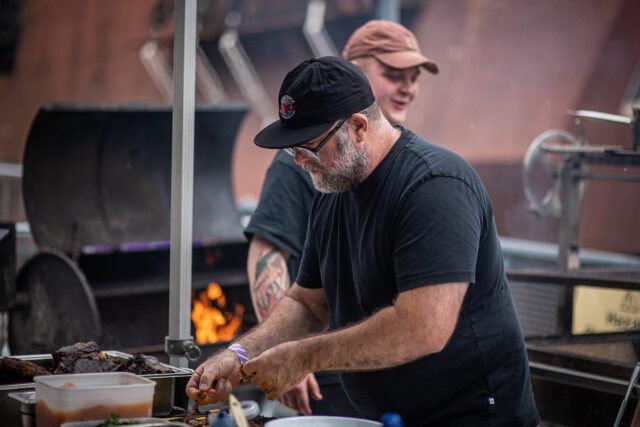
The man, if you haven’t already guessed, has several other strings to his bow too. He is one half of independent butcher and supplier of the best-quality British rare breed meat money can buy, Turner & George, which stocks the fridges of Blacklock and Hawksmoor – both famed for their meaty menus, ranging from rich Sunday lunches to sumptuous steaks.
Finally, he’s the entrepreneur who brought New York’s Meatopia festival to London and beyond. Our interview takes place a few weeks after the famous meat festival cooked up a storm at the capital’s Tobacco Dock in September, where 12,000 spectators flocked to watch 70 of the world’s best live-fire chefs cook exclusive dishes over the course of three days. A challenge? Yes. A joy? Certainly. “It started off as an excuse to have a good time, eat meat and get smoky and it’s become one of the best barbecue festivals in the world. I always have a great time,” he says.
So, how did Turner land such impressive Michelin-starred gigs straight out of the military? And, in 2023, how does he balance the meat and sustainability debate? Let’s find out.
I was born in London and grew up in Regents Park until I was 11, when I was packed off to boarding school in Surrey until I was 17. [I don’t have many foodie memories] but my mum was a brilliant cook so I [think] I got my love for food from her. She made the most delicious lamb belly roast and her Yorkshire puddings were exemplary.
I had four weeks between leaving school and joining the army, I had barely turned 17. I have interesting opinions on education, but we won’t get into that now. I was in the army for seven years and left at 24. I had a great time and travelled all over the world. I didn’t really like Iraq very much, but Hong Kong, Borneo and Belize were good fun.
I left [the army] after the first Iraq war, around 1991. I set up a private security company in London for close protection work. One evening, we went for dinner at Le Gavroche. I was on a different table keeping an eye on the clients and, if you didn’t know, close protection security is very boring and mundane [but] I really enjoyed the food. I was about a year into [the close protection work] and decided I would like to get into the kitchen. The Roux brothers turned me down repeatedly but they eventually let me in. I stayed for a year and became a chef – well, a cook.
I’m extremely greedy and I love food – it’s one of the greatest pleasures in life isn’t it? I’ve struggled with the amount I eat all my life. It’s fine when you’re a soldier because you can burn it off, but when you’re not a soldier it makes you a bit plump.
When I got into the kitchen at Le Gavroche, I felt the environment was very similar to the army. It’s disciplined, strict, and can be quite tough. Once I’d done a year at Le Gavroche, which was known as one of the best restaurants in Britain, I’d earned the right to go to other kitchens. I went to work for Marco’s, which was Pierre White’s restaurant, [as well as] Pierre Koffman, Robuchon and Ducasse. I stuck at the Michelin-star malarkey for about seven years.
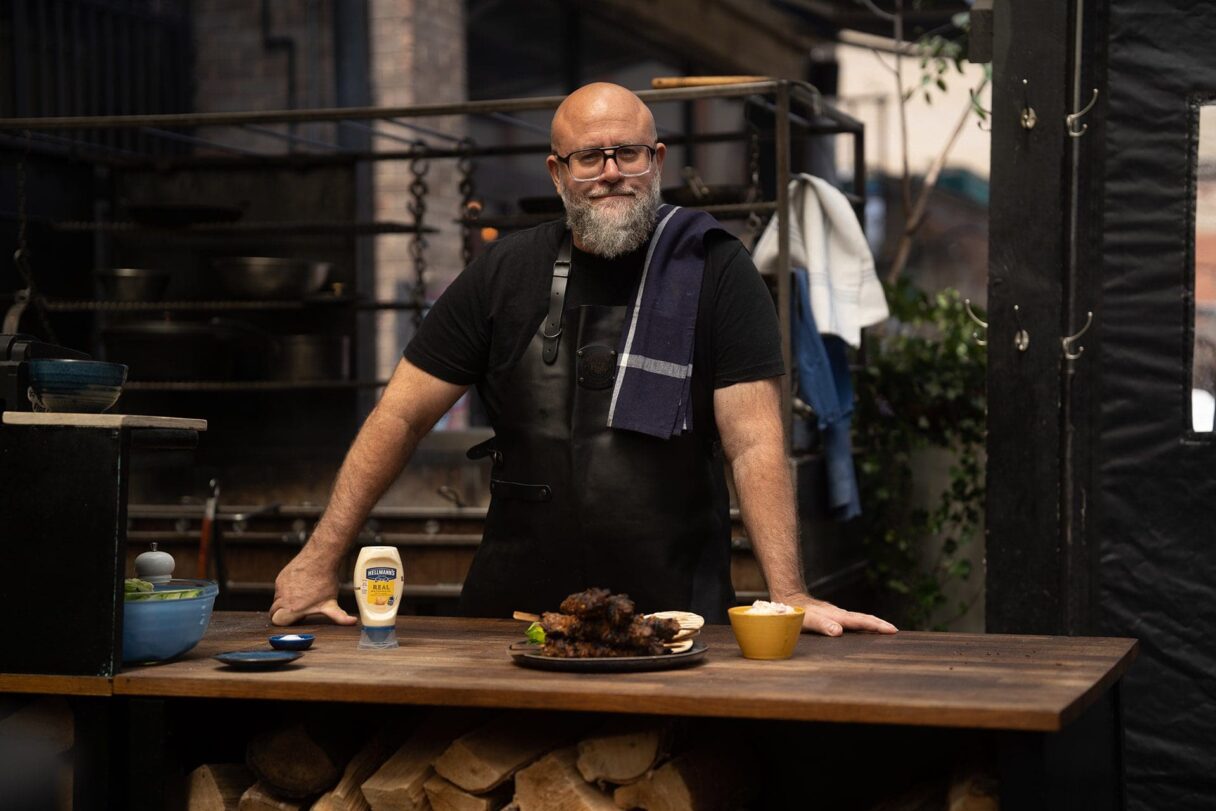
I got disillusioned with Michelin-star food. I didn’t enjoy eating it as much as homely, comforting food. I had a meal at St John [in Barbican] and just thought I’ve got to stop cooking this stuff. St John was my inspiration [for a long time] and it was where I wanted to go next, but instead of progressing my fine dining career I bought a pub called The Albion in Islington and The Old Bear in Cobham where I got a name for meat and barbecue cookery.
When I sold the pubs, I was eating in Hawksmoor quite a lot. It had quite a rudimentary, basic menu at the time [circa 2009] so I asked if I could work with them, and they said yes. I had been working on a steakhouse concept for years and I just took my idea of what a steakhouse should be to Hawksmoor, and reinvented it a little.
The live fire element wasn’t common in the UK but I wanted to do it. I also liked the protein-heavy starters, like oysters, lobster and prawn cocktails. I just created what I thought was what the best steakhouse would be.
It’s all about buying good meat. You can’t find a good steak in the supermarket or even in 90 per cent of butchers. You have to ask the right people.
It has to be reared correctly and for me, it has to be over 36 months old because flavour takes time. All the beef you eat in the supermarket is 18-24 months old and that’s why it tastes a bit ‘meh’. Whereas, if you get an animal that’s over 36 months old, they have achieved OTM (over 30 months) which also means more guaranteed flavour.
A sustainable steak is absolutely possible, but there’s just not much of it unfortunately. A lot of the farms in Britain are farming correctly but the problem is there are countries like Brazil and America that just don’t care.
Richard Turner
Meatopia has been going for 10 years and was started in New York by Josh Ozersky. We approached him about bringing it to London and put our own slant on it, and I think we improved it. It started off as an excuse to have a good time, eat meat and get smokey and it’s become this festival where we fly people in from all over the world and have 12,000 visitors. It’s become one of the best barbecue festivals in the world. We do it to have fun really, that’s why we do it once a year. The food was incredible and there was no one outside protesting against meat – so it was a success.
We only cooked one dish at a time and I created a steak macerated in Hellmann’s mayonnaise for four hours, which imparts a really good flavour. [The steak] was then charcoal-grilled to medium rare, smothered in a dehydrated beef crumb and served on bone marrow-buttered toast.
Until recently, no I didn’t because I believe good meat stands alone. I think marinades are often for cheaper cuts of meat but actually mayonnaise works really well and I find a kimchi marinade interesting too.

Hawksmoor
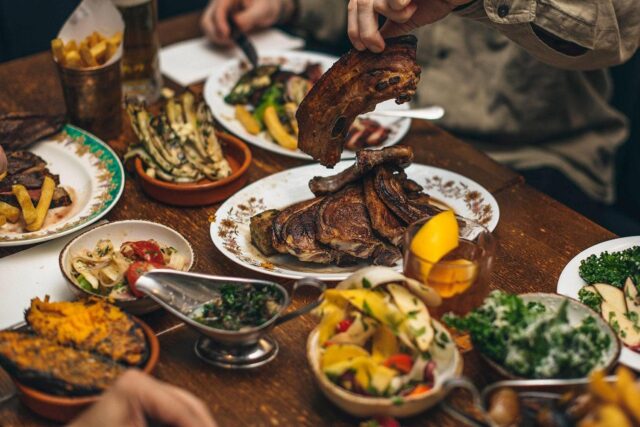
Blacklock
Everything I’m involved in is sustainable. All the meat at Blacklock, Turner & George, Meatopia is the good stuff meaning it comes from ethical farms, and we don’t go anywhere near intensively-farmed meat. It will sometimes slip into the supply chain but as much as we can, everything is sustainable and farmed regeneratively.
A sustainable steak is absolutely possible, but there’s just not much of it unfortunately. A lot of the farms in Britain are farming correctly but the problem is there are countries like Brazil and America that just don’t care. They’re farming big cows and pumping them full of hormones – and that’s where unsustainable farming and meat comes from.
A lot of that hoo-hah about not eating meat because it’s bad for the environment is actually true if you’re getting your meat from unethical farms such as those in Brazil, America and China. In this country, our meat isn’t bad for the environment. A vegetable diet, even in the winter, involves flying in produce from all over the world in order to have a different array of produce. Some growers also wipe out whole monocultures to produce vegetables. But that’s okay? The whole argument is flawed. They’re welcome to their views, but they’re wrong.
Number one: use charcoal or wood as it imparts its own flavour. Let it burn down to white hot so it’s smouldering and that can take up to an hour. The reason we’re so supposedly bad at barbecuing in this country is because we cook too quickly and over rubbish sources of fire. If you cook slowly and gently, you’ll get a much better result.
You’ve also got to let your steak rest. I’ve done a lot of research on resting, and the difference between letting meat rest for 10 minutes and 25 minutes is beyond comparison. The fibres of the meat relax and become more tender and juicier. If you can resist, then rest it for 25 minutes.
I love Asian and Turkish food, especially from the authentic restaurants in Dalston. I love Acme Fire Cult in Dalston too, and I’ve just discovered a fish restaurant called Sharkbait and Swim in Deptford Market.
Hawksmoor and Blacklock, but the Quality Chop House does incredible steaks too. The other place would be Lyle’s in Shoreditch; I’d even say it has the best steak in London. [James Lowe] is a super chef with Michelin stars that focuses on the best produce. Last time I was there he had meat from Shetland that was eight years old – and the steak was pretty special. He doesn’t always have it on the menu, but if he does you must try it. I’d also recommend Manteca: they choose good animals and cook it really nicely.
Visit meatopia.co.uk
Read more: The best restaurants in Hackney

